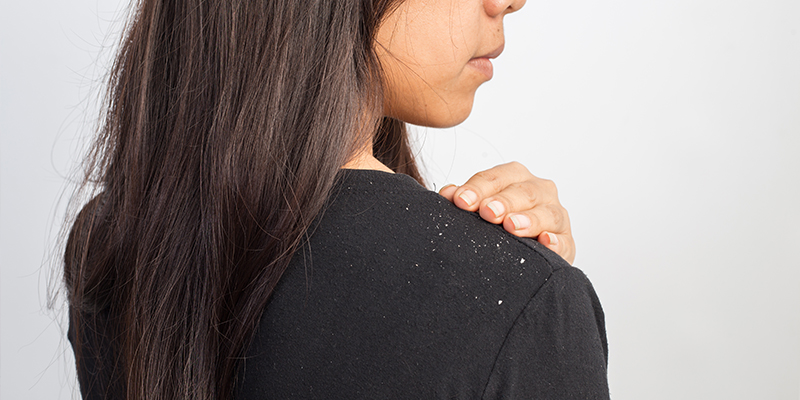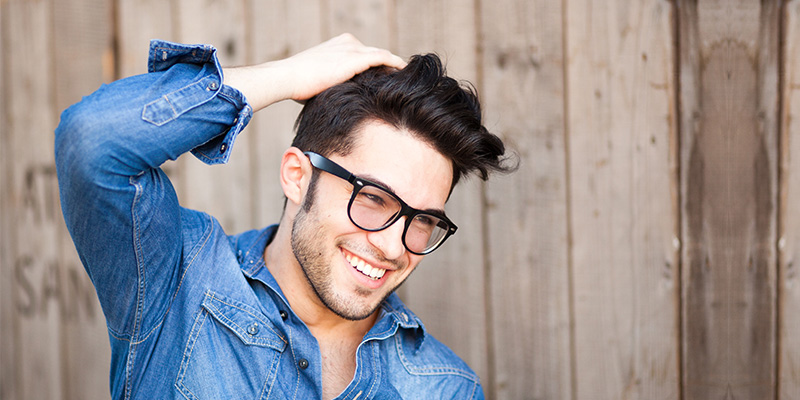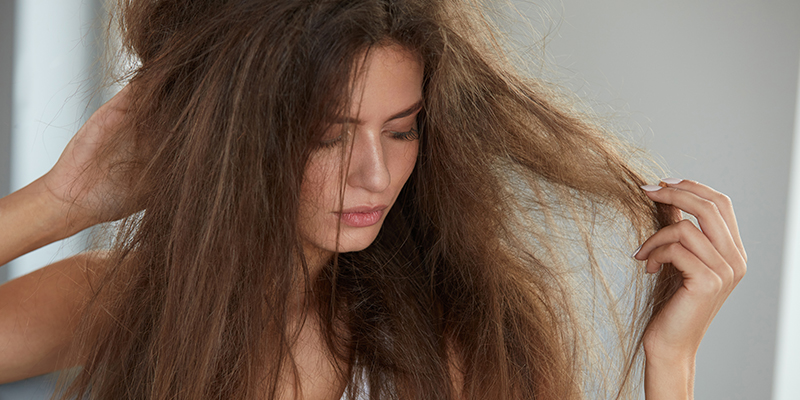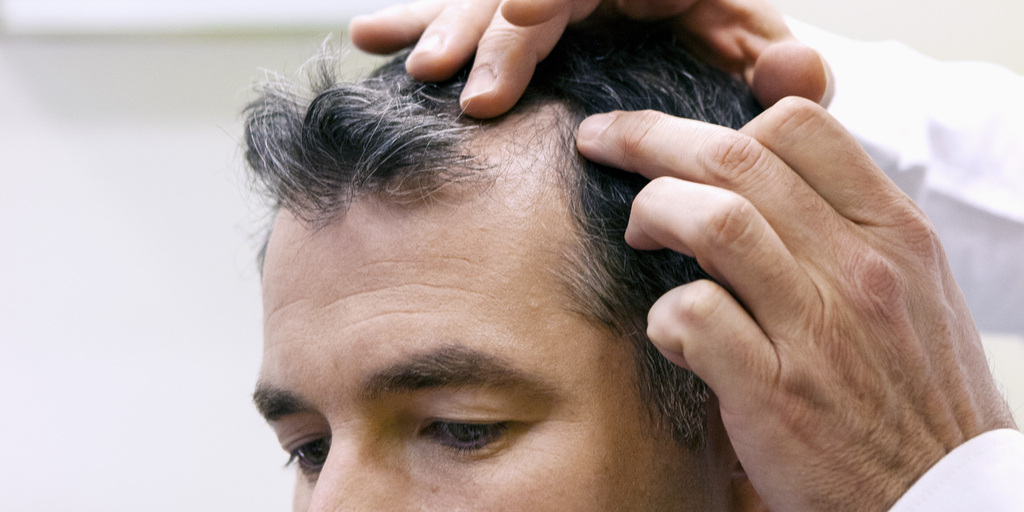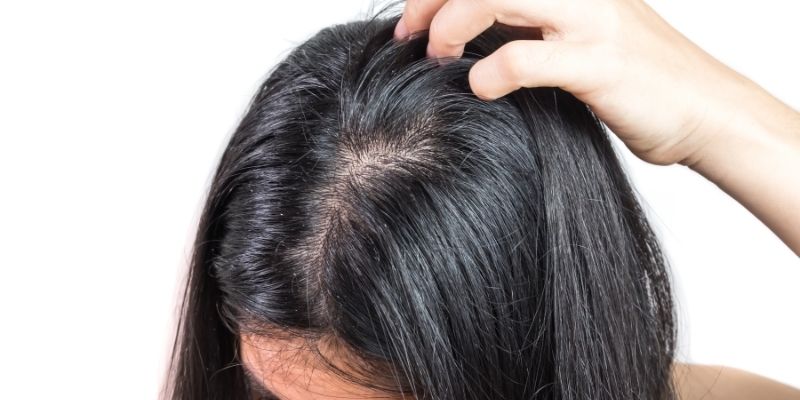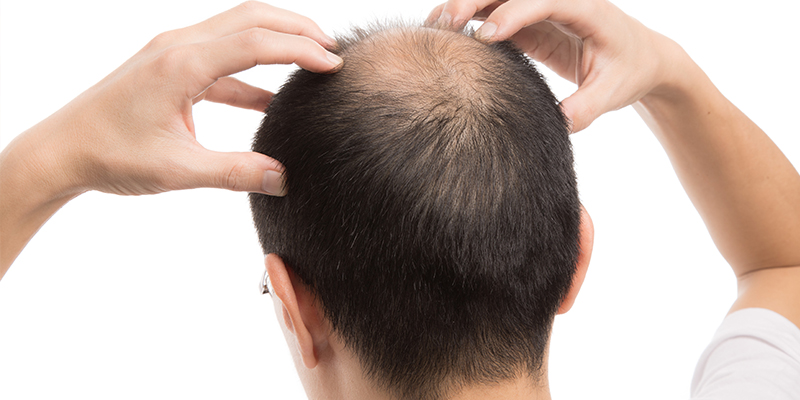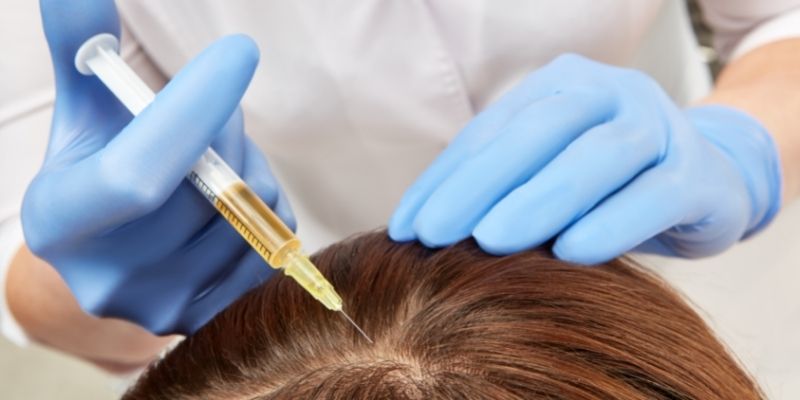Dandruff And Hair Loss – Causes, Treatments & Prevention
Dandruff is a concern that affects 30-95% of the world’s population. Otherwise known as Pityriasis capitis, this rather common scalp disorder affects those in the age range of 15 to 50 years. The flakes and itchiness are a cosmetic concern, primarily because the former is visible on dark hair. Many people think there is an association between dandruff and hair loss. This article will shed more light on the same.
Does Dandruff Cause Hair Fall?
No, dandruff does not cause hair fall directly, and neither do the flakes on the scalp impact the amount of hair you are shedding. However, it can often result in scalp irritation and itching, which can turn into a bad habit of constant scratching. Scratching is damaging for the hair follicles and can lead to an increase in hair fall due to breakage of hair shafts.
Besides the physical factor, the inflammation occurring in response to the fungal elements in dandruff can weaken the hair root and hence can precipitate hair fall. Studies show that dandruff can precede or accompany telogen effluvium and may exacerbate androgenetic alopecia.
Hair Loss And Dandruff – The Connection:
Dandruff may not have a direct link to hair fall, but some of its symptoms can weaken your hair roots or shafts and increase the volume of hair shedding. Some associations between dandruff and hair fall are as follows:
- The irritation and inflammation triggered by dandruff turn the scalp flaky and itchy. These symptoms result in an urge to scratch your scalp, thus damaging follicles and causing hair breakage.
- If dandruff is acute, the flakes can become plaques, damaging and destroying hair follicles. Chronic dandruff can lead to hair fall.
- If an overgrowth of the Malassezia fungal species on the scalp is the cause of dandruff, hair fall is likely. The fungal infection severely weakens the hair roots due to inflammation and has a detrimental impact on your overall hair health. It can act as a trigger for patterned hair loss as well as hair shedding.
How To Reduce Hair Fall And Dandruff?
A combination of medical treatments and prevention tips often resolve dandruff and hair fall problems. While the medical procedures help treat the infection, stop the progression of dandruff and reduce the rate of hair fall – useful tips for prevention aid in maintaining these results in the long term.
Also Read: What Causes Hair Loss In Men And Women?
Top 3 Treatments For Dandruff And Hair Fall:
When hair loss accompanies dandruff, it can be worrisome. Fortunately, both conditions are manageable with an accurate diagnosis by an experienced dermatologist. He can examine your scalp to determine the cause and recommend the appropriate treatment option.
Here are the commonly prescribed treatments to get rid of dandruff and control hair fall:
1. Anti-Dandruff Shampoos – These shampoos are formulations, containing antifungals and keratolytics such as zinc pyrithione, ciclopirox, tar, salicylic acid, and ketoconazole, etc. Using these shampoos help reduce fungal growth, itchiness, and inflammation that accompany dandruff.
2. Topical Steroids – In selected cases, dermatologists may advise the use of topical steroids for short term. These medications may come in the form of topical lotions and anti-dandruff shampoos. It is advisable to use these formulations only if your dermatologist prescribes them.
3. Tar Shampoos – Coal tar shampoo with or without antifungal or salicylic acid combination helps treat severe cases of dandruff.
How To Prevent Hair Fall And Dandruff:
The results of hair fall and dandruff treatments do not last without proper maintenance and scalp hygiene. However, by following the below preventive tips, you can keep dandruff at bay, and regrow your lost hair:
- Including specific nutrients such as zinc, omega-3 fatty acids and a few vitamins in your diet help in reducing dandruff and curbing hair loss. Consult your dermatologist before adding supplements to your diet.
- Wash your hair 2-3 times a week to control dandruff. Use dermatologically-approved shampoos.
- Stress and environmental factors like humidity and climate changes can trigger dandruff, in some cases. Opt for holistic ways to reduce stress to prevent dandruff and hair loss.
Dandruff is a common problem among men and women of all ages, which can be bothersome. Hence, one may feel the need to get rid of it at the earliest. Avoid experimenting with home remedies and instead consult a dermatologist today, to find the best treatment option for you.
Our certified subject matter experts do extensive research and collate facts from reputed scientific journals and international studies to create informative and engaging articles related to all your dermatology concerns. They strive to help you decipher medical jargon, distinguish fact from fiction and overcome paranoia. Our qualified medical board or expert panel goes a step further to verify these facts based on their rich academic knowledge, vast clinical experience and critical industry insights to ensure you consume only medically accurate content that empowers you to make informed decisions about your hair and skin-care treatments and weight management. Check out our Editorial policy for further details
https://www.ncbi.nlm.nih.gov/pmc/articles/PMC4069738/https://www.jidsponline.org/article/S0022-202X(15)52614-6/pdf
https://www.ncbi.nlm.nih.gov/pmc/articles/PMC2887514/
https://www.ncbi.nlm.nih.gov/pubmed/30851208
https://www.ncbi.nlm.nih.gov/pubmed/31001967
https://www.ncbi.nlm.nih.gov/pubmed/22409453




